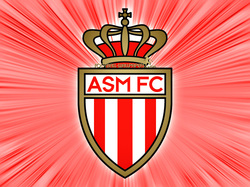
In the principality of Monaco, non-French residents are not subject to any income tax. On the other hand, France and Monaco have an agreement that French nationals resident in Monaco, including football players, pay income tax at the prevailing French rate. This situation has existed for many years without blowing up into a major issue in football. With the arrival of the Russian billionaire Rybolovlev, however, AS Monaco can now compete financially with any of the richest European clubs, including current French champions and Qatari-owned PSG, as well have having much more resources than recent champions like Montpellier and Lille.
Another possible complication is the proposed 75% tax on French incomes over €1m that would give AS Monaco an even greater advantage. Though the initial tax was declared unconstitutional, it may be imposed on the clubs, rather than players, in future. While the FFP and LFP are against such a high tax rate, on the basis that French clubs would be at a disadvantage vis-a-vis clubs in other European countries, they are also united in their determination to reduce Monaco’s tax-free advantage.
Monaco is also unique among top French clubs in that it has an extremely low, but possibly relatively rich, fan base. Monaco were relegated from Ligue 1 in season 2010-2011 with an average attendance of just under 7,000 and had an average of approximately 5,000 during their two seasons in Ligue 2. In contrast, in season 2012-2013, PSG and Lille averaged over 40,000 while both Marseille and Lyon averaged over 30,000. In their opening home game in Ligue 1 this season, complete with new acquisitions, AS Monaco’s attendance was 14,573 (information on French football attendance is available here). While there may be a novelty affect of seeing the new signings for the first time, it is possible that increased quality will lead to a permanent increase in attendance which will further strengthen Monaco’s
position in the transfer market. Even so, Monaco can argue that a rich owner and tax-free income helps to ‘level the playing field’ with the larger French clubs.
In seeking to ‘punish’ Monaco for their new-found advantage, some have criticised the FFP and LFP for taking a very short-term view. In the longer term, it is argued, a successful Monaco, complete with top foreign players, may increase worldwide support for Monaco and, by extension, interest in the French League, thereby benefitting all French teams. As well as that, the preference of many football fans may be for a successful Monaco as it will increase overall quality in the League and give fans of other teams the chance to see world-class players on a regular basis.
Even if AS Monaco is successful in its legal challenge, the effect of any Financial Fair Play (FFP) regulations may be to ensure a similar outcome to that envisaged by the FFF and LFP. For a club with such low gate revenue, FFP regulations may limit AS Monaco’s ability to invest large sums on transfers and wages.
 RSS Feed
RSS Feed